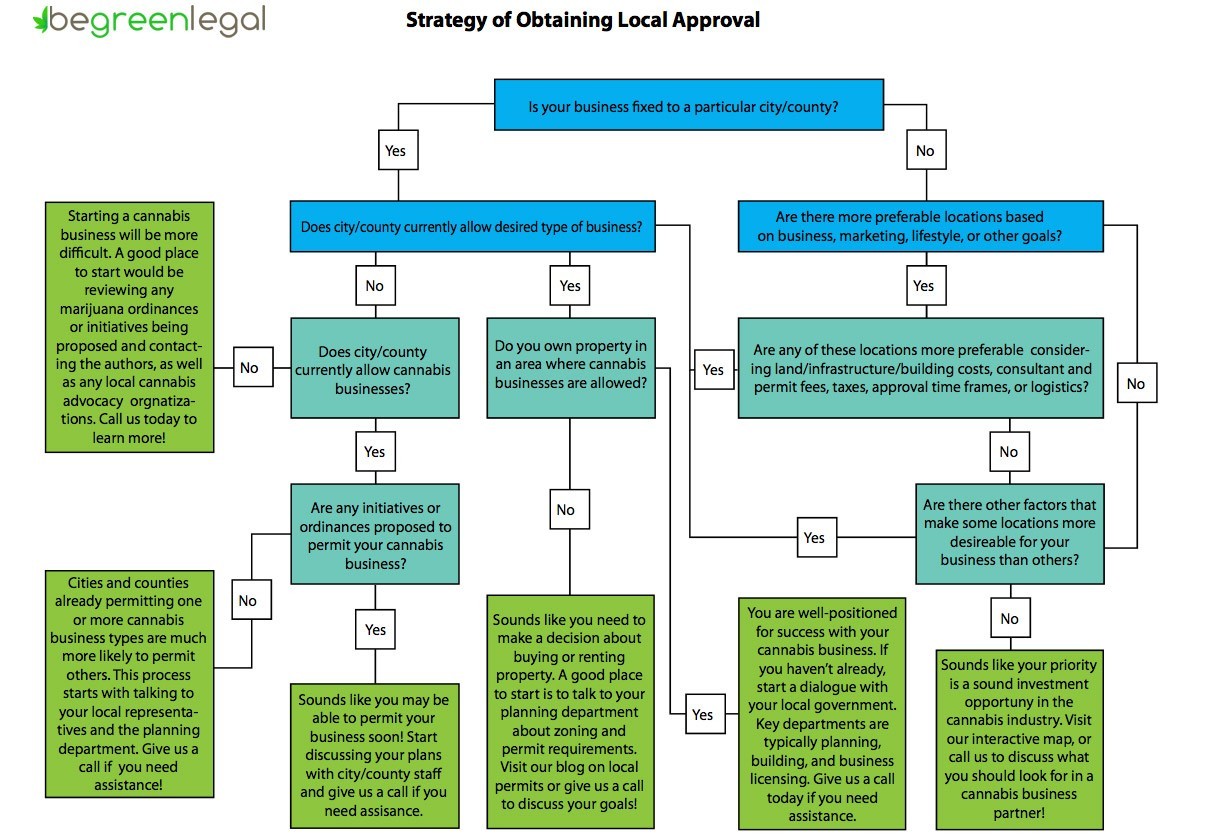How do I start a marijuana business in California, now that it is legal?
Strategy of Obtaining Local Cannabis Approval – Part 2
Although medical marijuana was legalized in California by public initiative over 20 years ago, regulation of this new industry has been limited for a number of reasons, including:
- No requirements for marijuana businesses to obtain a state license;
- Local government bans, or lack of a defined permit process;
- Federal regulation of marijuana as an illegal drug, which has deterred state and local governments from enacting or enforcement more stringent regulations
- Reliance on the patient collective model in which patients can cooperatively grow and distribute marijuana for the benefit of its members.
With the passage of the Medical Cannabis Regulation and Safety Act (MCRSA) in October, 2015 and the Adult Use of Marijuana Act (AUMA) in November, 2016, California state and local governments are now implementing a tightly regulated licensing system in which commercial marijuana businesses will be required to obtain approvals from both their local governments and one of three state agencies starting in 2018. This dual licensing structure is intended to preserve the power of local cities and counties in California to regulate where and how businesses can operate within their borders. The three state agencies (Department of Consumer Affairs (DCA), Department of Food and Agriculture (DFA), Department of Public Health (DPH)) issuing licenses will first require marijuana businesses to obtain a local approval before approving the state license.
While a number of cities and counties have passed some form of ordinance regulating marijuana businesses, many others have not. Consequently, marijuana businesses interested in obtaining a local approval will need to develop a strategy based on answers to the following questions:
Visit our blogs for additional information on other specific aspects of the licensing process.
Need help with your Cannabis Business. Call Be Green Legal today.




